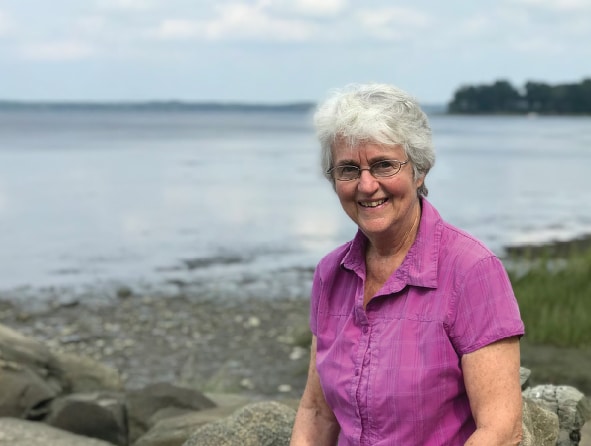For Beryl Harper, there is no greater joy than sharing her passion for the natural world with the next generation of lovers of the land.
Which is no surprise considering Beryl spent her childhood outside; whether it was playing in the woods behind her Massachusetts home or exploring the bay shoreline at her family cabin in Maine, or attending a Girl Scout sailing camp, her adulation for nature was forged from an early age.
Beryl’s face lights up as she recounts these adventures. Because, for her, the beauty of nature-based education is the unpredictability of the encounters that await young explorers – and how, as she says, “playing and being comfortable in nature” is key to raising the next generation of land stewards.
“You want the nature-based education experience to be hands-on, so the children feel attached to what they’re learning,” she says. “The research tells us that if a child does not engage with the outdoors in a personal way, all the education-talk that we give them just won’t feel as relevant and won’t be absorbed as much as it could be.”
She pauses because a garter snake has just emerged from under a foot bridge, and casually slithers across the walkway, just several feet away. Then, moments later, a squirrel bounds past with a piece of forage in its mouth the size of a softball. Beryl laughs – “Nature is impromptu!,” she says.
When she moved to New Hampshire in 2003, one of the first things she did was to connect with the local land trust, always a priority no matter where she called home. or her, it was Strafford Rivers Conservancy, which merged with SELT in 2014. As a current SELTie, Beryl has found a perfect alignment with her values, most notably nature-based education, a core component of SELT’s strategic plan. Her enthusiasm is obvious as she speaks of the forthcoming school and community partnerships – and the potential for a whole generation of children to experience the magic of the outdoors that shaped her.
“I think it’s terrific,” she says. “The more we can encourage outdoor play and hands-on exploration, the better!”
What Beryl knows from her own experience, SELT has learned through its research and planning for the Mathey Center for People and Nature and the intended nature-based educational hub that it will become. To grow the next generation of land lovers, kids must have repeated, regular opportunities to explore wild and semi-wild places to develop their direct connection and appreciation of the natural world.
Beryl mentions this as she walks the beautiful boardwalk that weaves through the Estuarine Reserve property and hugs the shoreline of the Great Bay. She smiles broadly when looking at a family of ducks lounging in the marsh, or trying to pick snakes out in the murkiness of the brackish waters, or walking through the model wigwam that she uses to teach children about the Abenaki people, or talking about the flurry of hard-shelled activity on the beach during horseshoe crab breeding season.
Indeed, when Beryl Harper is outside and teaching it is obvious: she is in her natural habitat.

